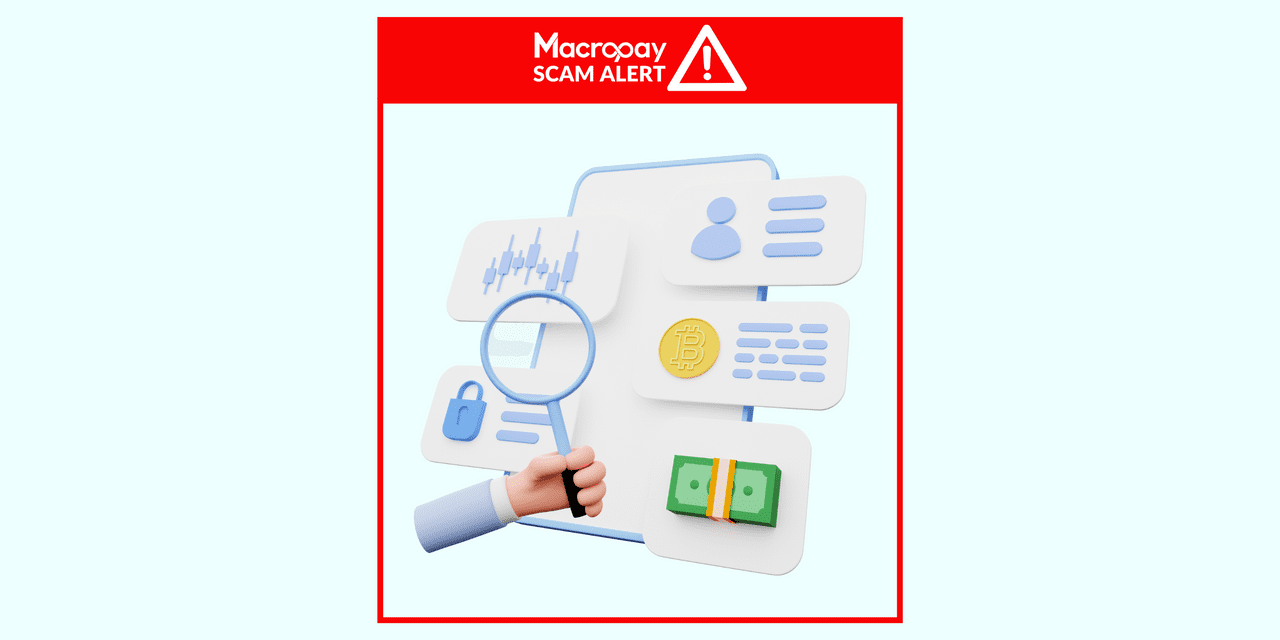
Perhaps one of the most notable hallmarks of the new generation is the prevalence of social media. In this Macropay Scam Alert, let us focus on the fraudulent activities done through social media channels.

Social media permeates our lives on such a deep level that it takes hours of our time, influences our decisions, and even shapes our opinions. It has become such a force that scammers utilise social media channels for their fraudulent activities.
What is a social media scam?
It refers to the practice of using social media platforms to illegally make money out of the platforms. A social media scam can be in the form of phoney investment schemes, data breaches, giveaway or contest scams, credit repair scams, and many more crafty schemes.
The Dangers of Social media Scams
Scammers use Facebook, Instagram, Twitter, TikTok, even LinkedIn, Reddit and other seemingly secure social media platforms, to attack victims in several malicious ways.
Stealing your financial information
They might try to deceive you into disclosing your financial and personal information so they can obtain loans in your name, apply for credit cards using your information, or access your online bank, credit card accounts, and e-wallets.
Soliciting Payments & Giveaways
Other social media con artists may utilise a social network to deceive you into paying them with gift cards or cash. Some claim that you have won a contest or a raffle, but you’ll need to send them money in order to claim your prize.
Investments & Get-Rich-Quick Schemes
Scammers will post enticing content that shows money or a glamorous lifestyle in the hopes of getting people to interact with them for “advise” and “tips” to get rich. In actuality, they will con the victim into giving access to online accounts or sending money that the scammer promises will double or triple in value.
Virtual to Real World
Some criminals are a little more traditional in their ways. They’ll look at your tweets, study your Instagram posts and stories, and even dive deep into your Facebook profile to figure out when you’re not at home and where you live. Then, when you arrive back from your weekend excursion, you risk finding that these burglars have robbed your home.
Preventing Social Media Scams
The best way to protect ourselves from scammers is to stay one step ahead of our game. Check out the following tips to lessen the risk of getting scammed.
Diligently checking your bank accounts
Social media scammers often go unnoticed until the damage has reached unbelievable proportions. To combat this, it is best to remain vigilant with your banking transactions and keep an eye out for unknown charges and accesses from another country.
Refrain from oversharing
Post as little private information as you can on social media. Additionally, never publish images that reveal your home address, bank details, or legal ID.
Check for the red flags
If something seems too good to be true, be suspicious. It is best to always look for the terms and conditions when joining a social media competition or signing up for a service. Never believe that you can be a millionaire overnight and that someone can fix your credit score in a few hours.
In conclusion, social media scammers are here to stay but we are not helpless in this fight. Equipped with enough knowledge, it is unlikely to fall for these ridiculous scams.
For more Macropay Scam Alert and insights, visit www.macropay.net